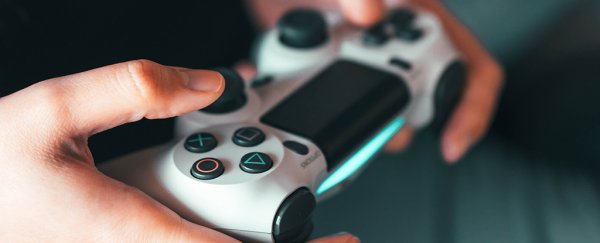Being unhealthily addicted to video games or the internet is now recognized by the World Health Organization's International Classification of Diseases, with adolescents particularly at risk – and as you might expect, the global coronavirus pandemic has made the situation worse.
With the disorders linked to mental health problems and poorer academic performance, researchers are busy trying to find ways of tackling the condition, and a new study looks to offer a particularly promising method of treatment.
Using a cognitive behavioral therapy (CBT) approach called PROTECT (Professional Use of Technical Media), there was a reduction in the severity of symptoms of both gaming and internet disorders.
"Results of this trial showed that the PROTECT intervention effectively reduced symptoms of gaming disorder and unspecified internet use disorder over 12 months," researchers write in their new paper.
A total of 422 high school students from 33 different schools, aged between 12 and 18 years old, were involved in the study. Of these, 167 were enrolled in a PROTECT course while 255 were used as a control group with no PROTECT training given. Follow-up surveys were then scheduled over the course of a year.
The PROTECT course is delivered by trained psychologists and consists of four 90-minute sessions. As with other CBT techniques, it tries to change negative patterns of thinking in order to shift behavior – in this case, risk factors such as boredom, motivational problems, and social anxiety were tackled.
After a year, the researchers found the severity of the symptoms of gaming and internet disorders had dropped by 39.8 percent in the PROTECT group, compared with 27.7 percent for the control group. However, there was no significant difference between the two groups in the incidence rates of either condition after a year.
"In addition, descriptive symptom analyses showed an initial increase in symptom severity of gaming disorder or unspecified internet use disorder within the first month in the PROTECT intervention group, compared with a decrease in symptom severity in the assessment-only control group," the researchers write.
"This paradox reaction could be explained by an elevated awareness of problematic internet behavior, which was induced by the PROTECT intervention."
What happens in the brain with these types of addictions is similar to what happens in the brains of people addicted to substances like drugs or alcohol, researchers think. Around 4.6 percent of people are thought to have a gaming disorder, with the prevalence of those with internet use disorder around the 6 percent mark.
With all of that in mind, these disorders are being taken seriously by the scientific and medical communities, especially as the impact of the pandemic on education and isolation continues to be felt around the world.
Further down the line, the researchers want to see further studies that involve more students and higher-risk groups, and suggest that the PROTECT materials could be delivered by teachers as well as counsellors.
Given that incidence rates for the two conditions didn't drop over the course of the 12 months, the team suggests that stopping the addictive behaviors at the earliest possible opportunity is the best route forward.
"Typically, prevention should start before symptom manifestation and should target individuals who might gain the most benefit and are selected according to factors that increase the risk of illness onset, such as age and first symptoms," the researchers explain.
The research has been published in JAMA Network Open.
